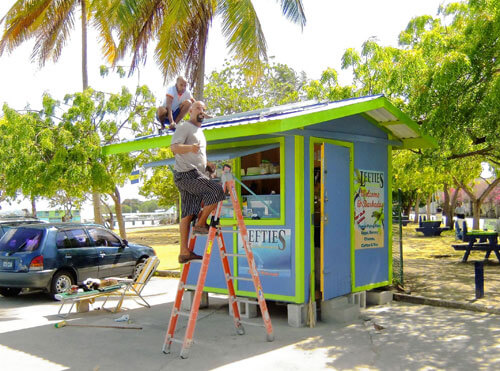Now that the weather’s warming and tornado and hurricane seasons are approaching, expect to start hearing more talk about climate change. Here in New York, Governor Cuomo has made it clear that he wants our state to be a leader in fighting against climate change.
Most experts say that climate change is related to human activity, especially burning fossil fuels like coal and natural gas. The exhaust from fossil fuels causes pollution consisting of several different substances, including carbon dioxide. Carbon dioxide, or “carbon,” is considered by experts to be the biggest problem. Many laws have been passed recently to cut down on carbon going into our air.
African-Americans in urban areas know pollution. We suffer more from lung disease due to pollution than do other groups. Asthma is frequent, made worse by dirty air. I founded the African American Environmentalist Association (AAEA) because I am an asthma sufferer, and I hope to bring our community relief from diseases that take away our breath and our health. As president of the AAEA, I’m pursuing environmental justice to make our air cleaner and our quality of life better.
That’s why I’m very concerned about how our state’s carrying out its new Clean Energy Standard (CES). The CES sets a goal of reducing carbon emissions from power generation by 40 percent versus 1990 levels by 2030. That sounds great, and we should all support reducing pollution for the future. The problem is that the state government is also pushing, at the same time, to close the power plant that does the most to keep our air clean right now, Indian Point in Westchester.
Indian Point uses nuclear power to make steam used to generate electricity. The plant doesn’t burn fossil fuel and doesn’t pollute our air. Similar plants further upstate are having some financial trouble, and the state government is trying to help them stay open because they’re a big help in meeting CES goals. But there’s political pressure to close Indian Point, and so far the state is favoring its opponents — even though the federal regulators that monitor the plant’s safety have recommended that it stay open for another 20 years.
If Indian Point is closed, it won’t be replaced any time soon by other sources, like wind or solar power, that don’t pollute our air. Instead, it will be replaced by fossil fuels, and that’s very bad news for our urban and African-American neighborhoods. If our air becomes dirtier, there will be more sickness like asthma. Anyone who has asthma or has a loved one with asthma knows that it’s a serious, even fatal, disease.
If New York’s government pushes to close Indian Point, African-Americans will suffer more harm than other communities, and that is unfair and wrong. Environmental justice demands that our needs be heeded: downstate lives are just as important as upstate lives! We must call on Governor Cuomo to lead in protecting not only our planet but our own people here, and support keeping Indian Point open.
About the Author: Norris McDonald is president of the African American Environmentalist Association (AAEA). Founded in 1985, the AAEA is one of the nation’s oldest African American-led environmental organizations. The AAEA is dedicated to protecting the environment, enhancing human, animal and plant ecologies, promoting the efficient use of natural resources and increasing African American participation in the environmental movement.

























